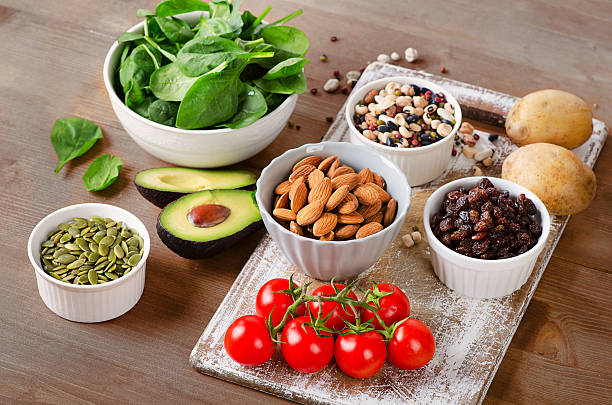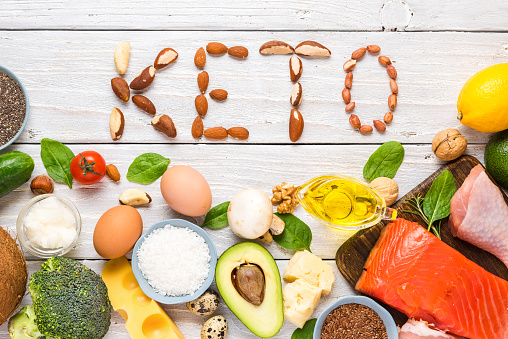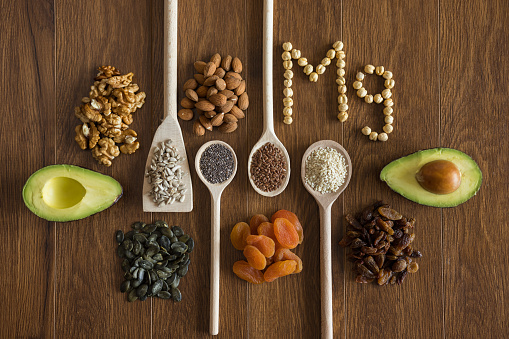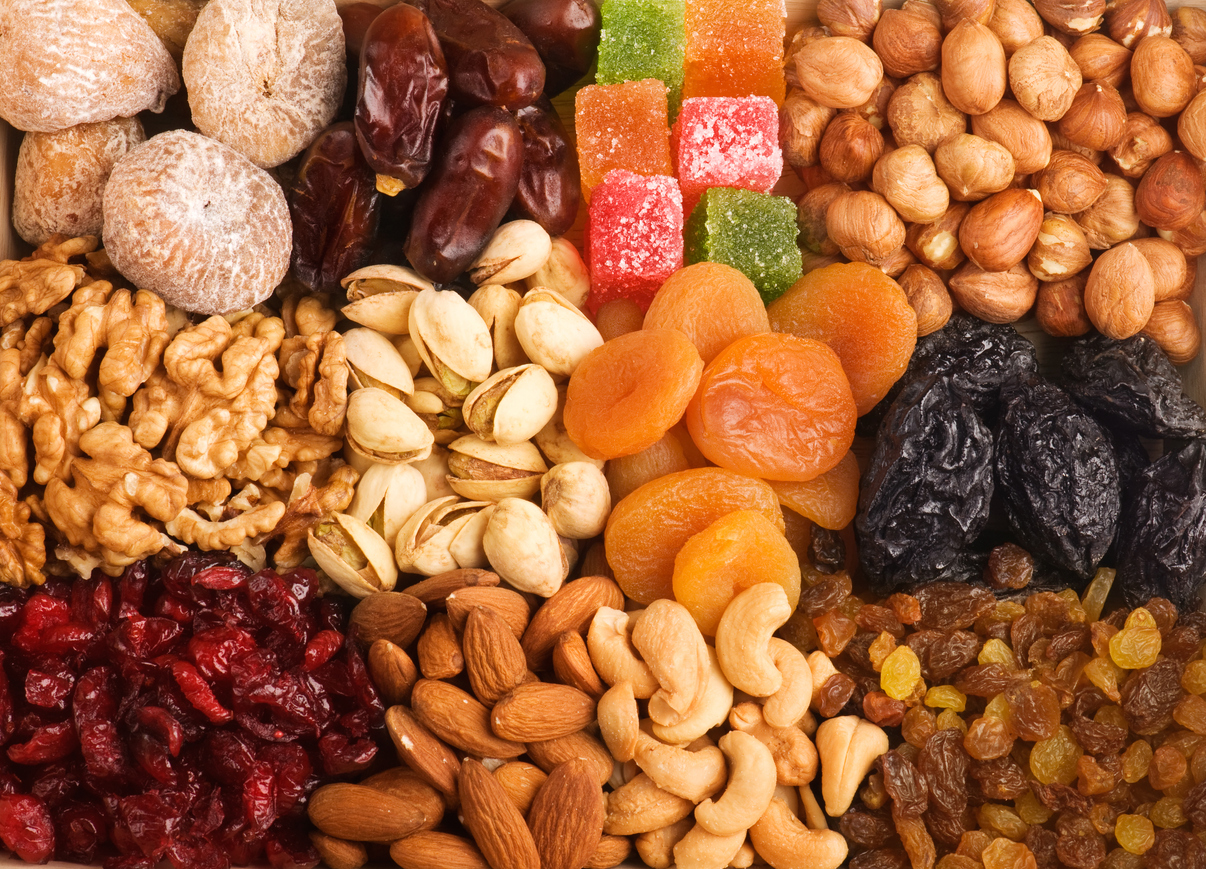Potassium plays a vital role in maintaining good health, but it’s not always easy to get the required amount from the food you eat. It is present in every body cell and is a very important mineral for the function of all our cells, tissues, and organs. Read out to know the top sources of potassium that are easily available.
In case you take medicines that waste your potassium like diuretics, your body will excrete potassium in the urine. In order to compensate for the loss, you need to take a diet that contains and fulfils the daily requirements of potassium.
It’s very much crucial to eat potassium on a daily basis to be healthy and to help prevent certain chronic conditions. The deficiency of potassium could affect long-term health. A deficiency of it may cause depression, insomnia, hypokalemia, and muscular weakness.
Top sources of potassium
Potatoes
Be it white, red, or sweet, potatoes can be a rich source of potassium; around 900 mg of the supplement can be found in only one medium Russet potato. These well-known complex carbs are likewise high in vitamin C, vitamin B6, iron, and fibre (particularly in the skin). Try to avoid frying potatoes; baking potatoes is ostensibly one of the most advantageous approaches to set them up.
Sun-dried tomatoes
Fresh tomatoes contain potassium though you’ll get even more from tomatoes in other structures like tomato paste, tomato sauce, and even sun-dried tomatoes, which contain greater than 11.8 grams of potassium per cup (or around 40 percent of your daily recommended intake). Sun-dried tomatoes are low in fat, additionally high in fibre, protein, and vitamin C which improve both digestive and immune system health conditions.
Kidney beans
Kidney beans are usually eaten well-cooked. On the off chance that you are fond of kidney beans, discovering more approaches to add them to your suppers might be exactly what you have to get more potassium into your eating routine. Kidney beans are an extraordinary source of potassium, with more than 600 mg for each cup. They are also enriched with carbs and fibre.
Dried fruits: Apricots, peaches, and figs
Try dried Apricots for an extraordinary potassium-rich snack that can even fulfil a sugar craving. Apricots are entirely advantageous to your well-being when served dry, or got dried out, which causes supplement levels to end up more concentrated. Only one glass can get you around 33% of the prescribed every day potassium level, or around 1,500 mg.
Bananas
Creamy rich and sweet bananas are a favourite food for many people of different ages. Bananas are one of the foods rich in potassium and fibre, know they contain more than 400 mg of potassium each. Bananas make a healthy high-energy snack and are more beneficial for athletes. They are low-fat food and keep cholesterol levels in check.
On the off chance that avocado isn’t a staple in your home yet, you ought to presumably begin adding it to your basic need list. This food is rich in these supplements containing 975 mg in one avocado – and added vitamins and heart-solid fats, moreover it is normally free of sodium and cholesterol. Avocados also constitute approximately 20 vitamins and are found to be beneficial plant compounds that provide proper nutrient quality to your diet.
Spinach
Spinach contains high levels of potassium, which is essential for maintaining a healthy heart, managing blood pressure, and preventing osteoporosis.
White beans
Whether you cook them or add them to a soup these legumes, like other beans, are an incredible source of protein, starch, and fibre. In just a half-cup of white beans, you obtain 595 milligrams of this supplement. White beans are also a great source of iron, which is required to make oxygen-carrying proteins.
Functions of potassium:
This mineral is a substance that conducts electricity in the body along with calcium, sodium, and magnesium. It is required to transport ions between cells — this is a major factor in metabolism; helps in muscle contractions, fluid balance, and proper heart functioning.
Regulates heart function
Reduces muscle growth
Build proteins
Maintain proper functioning of cells and tissues
An important role in kidney function
Control the acid-base balance
Benefits:
Protects the Heart, Brain, and More
International health at the Johns Hopkins Medical Institution claims that this mineral in the diet lowers blood pressure. High blood pressure is the major risk factor for stroke and heart disease. Research studies identified a diet rich in this supplement protects blood vessels from any damage and reduces the thickening of the blood vessel. It may also augment bone strength by safeguarding against bone loss and decreasing the vulnerability to developing kidney stones.
Assists in Better Blood Pressure
Potassium is important in the diet, but it’s more than just a mineral. Diets that include foods rich in this mineral are associated with lower blood pressure, but it’s not solely due to its functioning.
Studies prove that the result of Dietary Approaches to Stop Hypertension (DASH) has shown a huge impact on lowering blood pressure frequently in just a few weeks.
According to the National Institute of Nutrition, the daily recommended dose of the supplement differs with age. Here are the values for infants, kids, and adults.
Infants and children
0-6 months: 350 – 925 mg
6-12 months: 475 – 1275 mg
1-3 years: 550 – 1650 mg
4-6 years: 775 – 2325 mg
Adults
Men: 3750 mg
Women: 3225 mg
Stroke:
Potassium assumes a vital part in keeping brain capacity at an ordinary level. Large amounts of it permit more oxygen to achieve the cerebrum, in this way triggering neural action and expanding psychological capacity. There is a justifiable reason behind why individuals call bananas brain food; they contain astonishingly large amounts. It is of incredible significance in protecting stroke in the human cerebrum.
Low blood sugar:
A reduction in the potassium level causes a drop in glucose. Reduction in glucose can cause sweating, migraine, trembling, and nervousness. An intake of potassium chloride and sodium gives quick alleviation from such circumstances. This is additionally why diabetic patients are urged to keep their potassium levels ordinary, to decrease the odds of the rise in their glucose and insulin levels by balancing out the glucose levels all through the body.
Muscle disorders:
Potassium plays a key role in muscle compression. The vast majority of the K+ particles in the human body are situated in the muscle cells. An adequate concentration of this mineral is required for standard constriction and muscle relaxation. It keeps up ideal muscle and nerve capacity and maintains our reflexes quickly.
Bone Health:
The advantages even stretch out to enhance the well-being of your bones. There are certain characteristics, which neutralize different acids all through the body, which hold and protect calcium, making it out of reach to use for bone quality and durability.





Nice article.
Nice content. Good keep going
After examine a number of of the blog posts in your website now, and I really like your approach of blogging. I bookmarked it to my bookmark web site list and might be checking again soon. Pls take a look at my site as effectively and let me know what you think.
But wanna remark on few general things, The website pattern is perfect, the written content is very fantastic : D.
Top site ,.. amazaing post ! Just keep the work on !
Hello there, You’ve performed a great job. I抣l certainly digg it and in my view recommend to my friends. I’m sure they’ll be benefited from this website.
Very great post. I just stumbled upon your weblog and wished to say that I have really loved surfing around your blog posts. After all I will be subscribing in your rss feed and I hope you write once more soon!